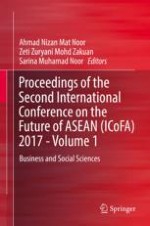2019 | OriginalPaper | Buchkapitel
The Forces of Intercultural Communication Toward National Unity in Malaysian Vernacular Schools
verfasst von : Ismail Sualman, Massila Hamzah, Nur Syuhada Roskhamdi
Erschienen in: Proceedings of the Second International Conference on the Future of ASEAN (ICoFA) 2017 - Volume 1
Verlag: Springer Singapore
Aktivieren Sie unsere intelligente Suche, um passende Fachinhalte oder Patente zu finden.
Wählen Sie Textabschnitte aus um mit Künstlicher Intelligenz passenden Patente zu finden. powered by
Markieren Sie Textabschnitte, um KI-gestützt weitere passende Inhalte zu finden. powered by
